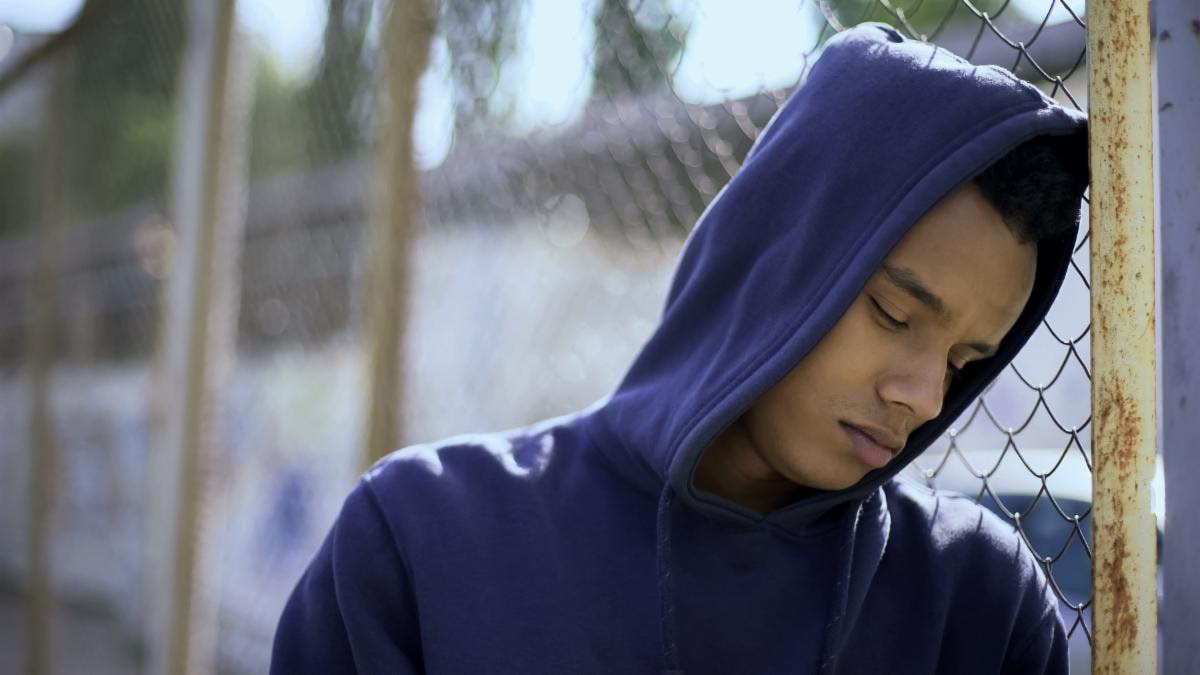|
The holiday season is filled with peace and joy for many, yet sadness and despair for others, creating the perfect storm for the onset or worsening of depression.
As a parent or other caregiver, do you feel confident you would know if your child was experiencing depression? And if your child was, would you know what to do? If you are questioning your ability to discern typical teen behavior from something more serious, you’re not alone. According to the C.S. Mott Children’s Hospital National Poll on Children’s Health from the University of Michigan, 40% of parents surveyed said they feel they would have a hard time telling normal ups and downs from possible depression in their tweens and teens. In addition, 30% of parents were concerned with recognizing signs and symptoms of teen depression due to youth being good at hiding their feelings. It is important to know that teen depression presents itself differently than adult depression in several ways. In the previous tip, Know! The Red Flags of Teen Depression, we provided tips for talking with your teen on the subject, and shared the signs and symptoms of depression, specific to teens, so that parents are better armed to recognize even subtle hints. In this tip we focus on how parents and other caregivers can help teens who are, in fact, experiencing depression during the holiday season and beyond (with these tips from HelpGuide: Parent’s Guide to Teen Depression): Encourage Social Connection
If you suspect that a teenager is suicidal, take immediate action! For 24-hour suicide prevention and support in the U.S., call the National Suicide Prevention Lifeline at 1-800-273-TALK. To find a suicide helpline outside the U.S., visit IASP or Suicide.org. Sources
Everyone has a role in prevention. By reading this Know! Parent Tip today, you’re doing your part to prevent substance misuse and create a healthier world for all. We created these free parent tips to empower parents like you to protect the young person in your life from alcohol, tobacco, and other drugs. However, we rely on donations from people like you to provide these tips. If you found this tip interesting or helpful, please consider donating at preventionactionalliance.org/donate. Know! Parent Tips are provided by Prevention Action Alliance with support from the Ohio Department of Mental Health & Addiction Services, the Ohio Department of Education, and Start Talking!. Know! Parent Tips are also available in Spanish at the Know! archives.
1 Comment
It’s December; tis the season to be jolly. That’s easier said than done for many people, adults and teens alike. All the hustle and bustle can worsen the symptoms of those who already suffer from anxiety and depression into. And for others, the holidays can create the perfect storm for the onset of symptoms.
Holiday parties, family gatherings, the overabundance of social media pics and posts, the loss of a loved one, divorce or other family separation, financial concerns, less sleep, indulging in unhealthy foods and drinks, are all contributing factors to people of all ages feeling overwhelmed, anxious and many times, depressed this time of the year. For some teens, feeling depressed can cause them to withdraw and avoid social interactions, which oftentimes leads to further sadness and loneliness – a downward spiral that can easily spin out of control. These feelings, which may be more easily managed during other times of the year, may be intensified in the midst of the holiday season. As parents and other caregivers of young people, it is vital to be aware of the many signs and symptoms of teen depression (according to HelpGuide: Parent’s Guide to Teen Depression):
When considering the red flags for depression, it is important to know that they may look very different in young people versus adults. Irritability, anger, or hostility: The predominant mood in a depressed teen is oftentimes irritability, as opposed to sadness. It is common for a depressed youth to be grumpy, hostile, easily frustrated, or prone to angry outbursts. Unexplained aches and pains: When a physical exam turns up zero answers to your child’s chronic headaches, stomachaches and such, the cause may be due to depression. Extreme sensitivity to criticism: It is common for young people who are depressed to experience feelings of worthlessness, which makes them even more vulnerable to criticism, rejection, and failure than their teenage peers. Withdrawing from some, but not all people: Depressed teens typically maintain at least some friendships, while depressed adults tend to isolate themselves. Depressed youth, however, are known to socialize less, pull away from their parents, and start hanging out with a new crowd. You are now aware of the many potential triggers of teen depression this time of the year. You are also aware of the signs and symptoms to look out for when it comes to youth who are depressed. Now it’s time to start up a conversation with your child, as communication is key. How you communicate is as important as what you communicate. When talking with your child, focus on listening, not lecturing. Be gentle but persistent, knowing that it can be extremely difficult for a teen to express having feelings of sadness and depression. Acknowledge their feelings, even if it seems silly or irrational to you. In the end, trust your gut. If your child won’t open up to you, but you know there is something more going on, consider reaching out to a school counselor, teacher, or mental health professional. The essential piece is to get them talking. Whether you question if there is a potential issue of depression or not, talking regularly with your son or daughter on topics such as this will help to build and foster a strong relationship between the two of you. |
Archives
February 2024
|



 RSS Feed
RSS Feed

